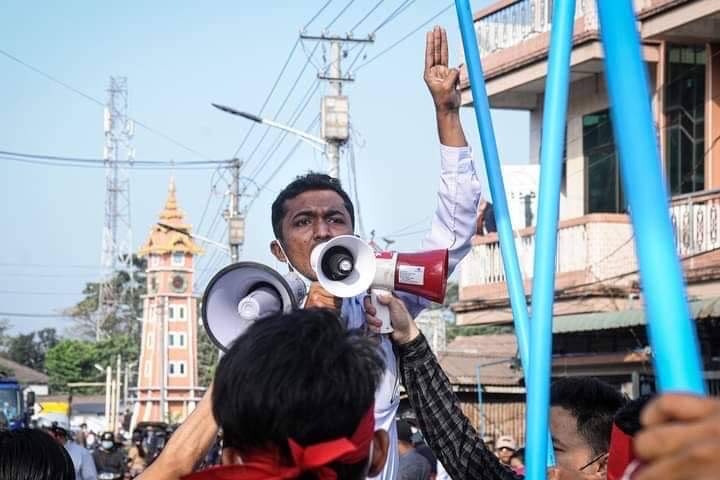Kyaw Zeyar Win
October 26, 2023

October 29th will mark 1,000 days since Burma’s military overthrew its democratically elected government on February 1, 2021. In that time, the State Administrative Council (SAC) and the military has unleashed unfathomable brutality against members of the anti-coup resistance movement and innocent civilians, killing over 4,000 individuals, including approximately 500 children.
The numbers are staggering. The Assistance Association for Political Prisoners (AAPP) reports that the junta’s crackdown has led to the detention of 25,344 individuals, depriving them of their rights and freedoms. The regime has burned an astonishing 86,000 houses. A recent report from the United Nations Office for the Coordination of Humanitarian Affairs (OCHA) has further highlighted the humanitarian crisis, revealing that an astounding 1.7 million people have been internally displaced since the coup. The junta has executed over 1,200 indiscriminate airstrikes, resulting in a tragic loss of life, devastated civilian infrastructure, destroyed homes, and disrupted livelihoods.
These statistics help us understand the enormity of the conflict in Burma, and the scope of the junta’s vicious campaign against the people. The figures don’t capture the unwavering determination and spirit of the Burmese people who, despite enduring severe repression, continue not only to survive, but to battle for freedom and dignity.
Myo Ko, a leader in the Bago Region People’s Defense Force (PDF), embodies this steadfast commitment to democracy, even in the face of grave danger. “I have witnessed firsthand the violence and brutality that goes hand in hand with a lack of democracy and freedom. Although I know the risks of being an activist, I cannot remain silent in the face of injustice,” said Myo Ko. From the halls of the Student Union in the Bago Region to the forefront of Burma’s democratic pursuit, Myo Ko’s journey represents one of unwavering resilience. As part of the persecuted Muslim minority in Burma, he was initially motivated to become an activist to champion the rights of his community. However, following the 2021 coup, he led non-violent protests demanding the reinstatement of democracy and the upholding of human rights for the Burmese people. Because of his leadership in the pro-democracy movement, the junta stripped him and his family of their home. Yet, he remains unyielding, “We lost our families and friends. We lost everything, and we have nothing more to lose,” he said.
Despite the challenges, Myo Ko remains determined to bring about change and create a more just and democratic Burma. He firmly believes the ‘Spring Revolution’ presents the Burmese people with the best and final opportunity for change: “If we lose this revolution, the people of Burma will lose faith, and their perception of the revolution will be tarnished. They will feel helpless and desperate and believe they can never overcome the army. The military’s domination and their brutalities will only intensify.”
Myo Ko’s resilience serves as an inspiration to all those who value freedom and human rights. “We continue to fight despite the worst conditions of being bombarded. We don’t want our future generations to suffer the same fate. We cannot leave them under the control of such a cruel military dictatorship. That is why we will fight until the end. So, we will not give up until we reach our goal,” he said.
The situation in Burma is a reminder of the horrors that can be inflicted by authoritarian regimes and the resilience of those who fight for their freedom and dignity. The international community must continue to support the pro-democracy movement in Burma until they achieve their goal of an inclusive, federal democracy.
